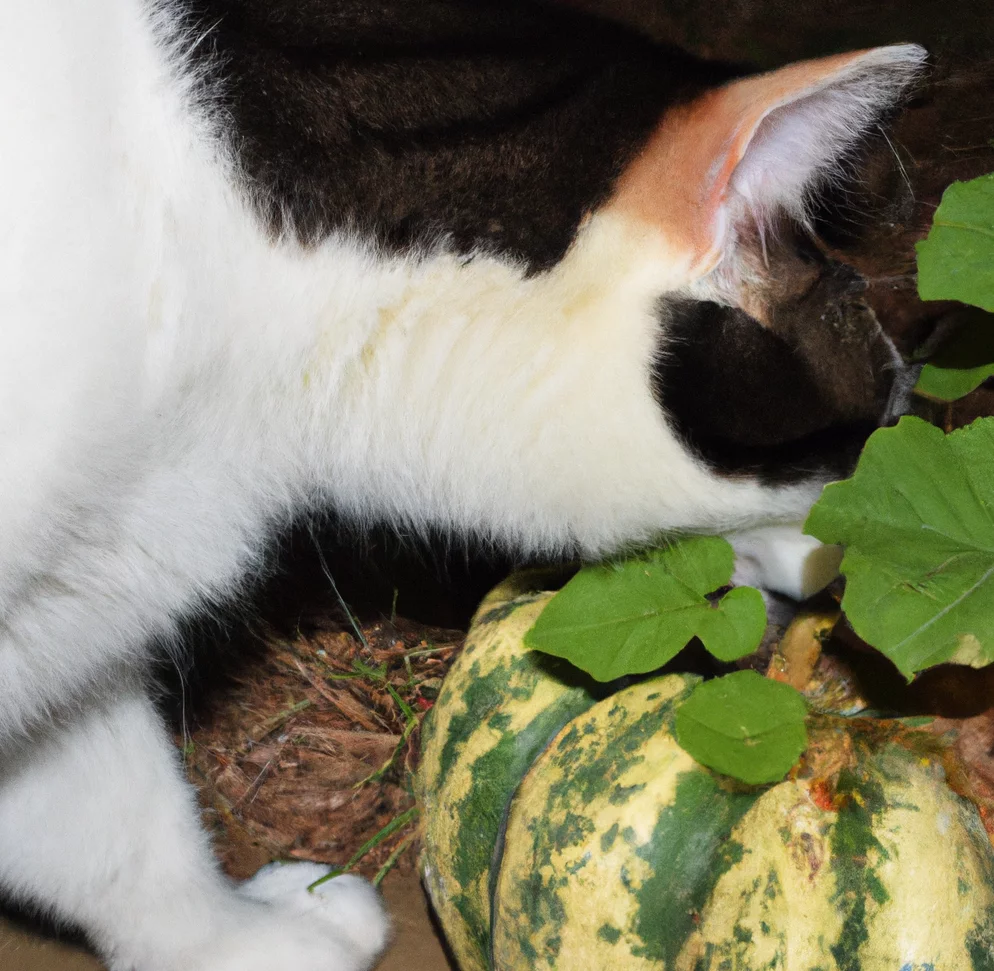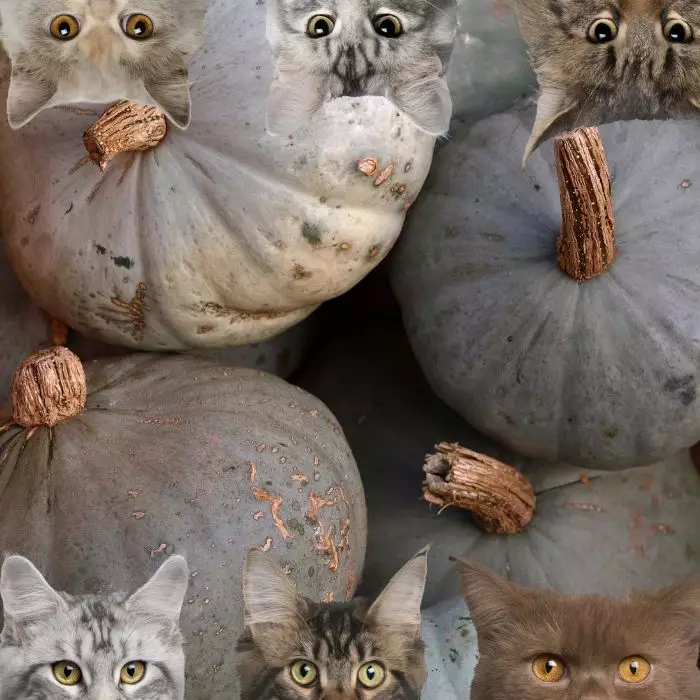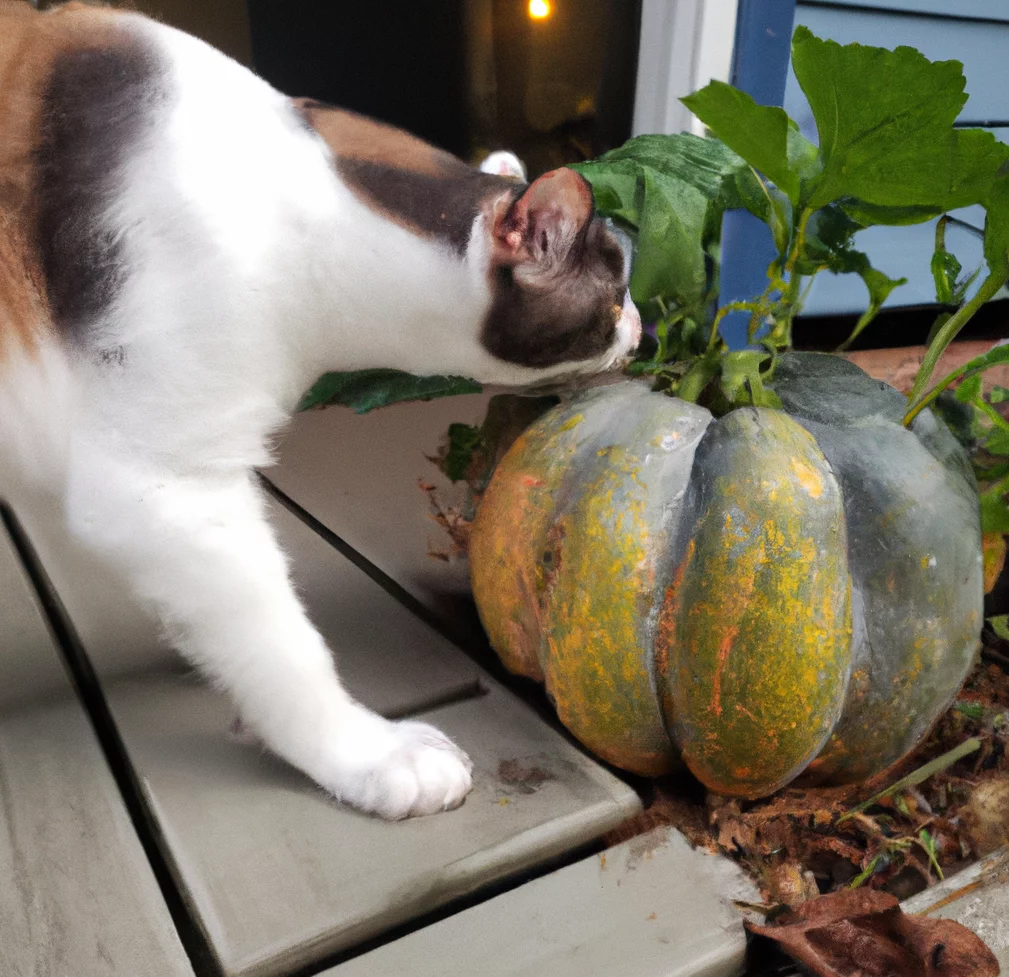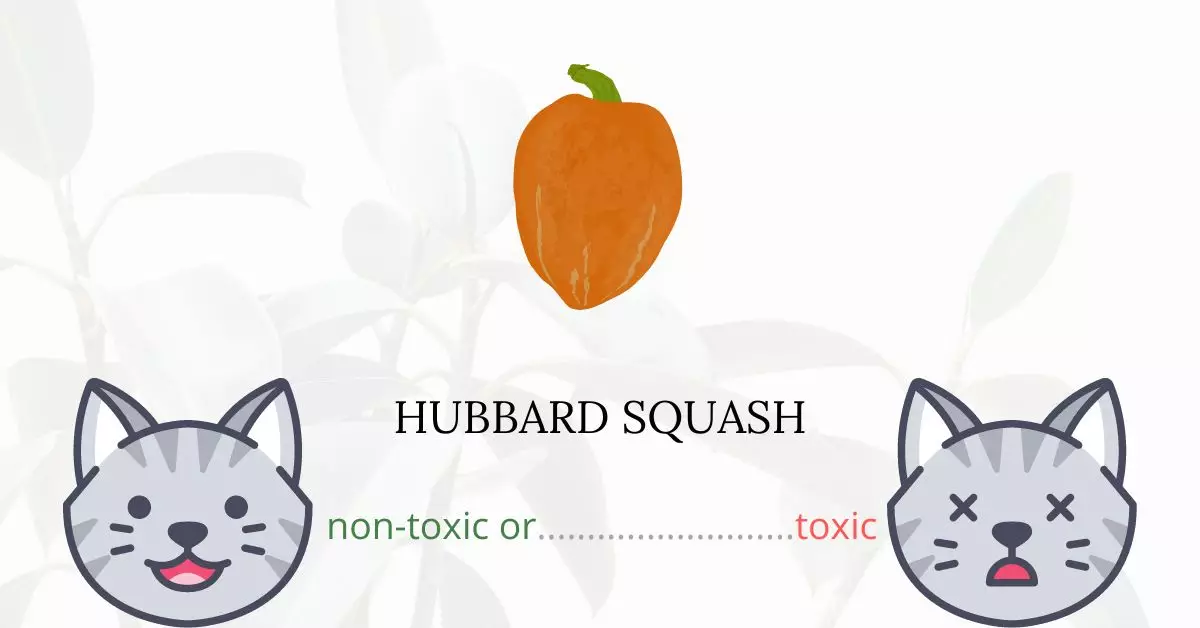Hubbard squash is not poisonous to cats. In fact, it is recognized as a nontoxic plant for felines on the American Society for the Prevention of Cruelty to Animals (ASPCA) list, as well as on other high-authority websites such as PetMD. Generally speaking, all forms of squash, including Hubbard squash, are considered safe for cats.
This article has been written in collaboration with a team of experienced DVMs (doctors of veterinary medicine). Through their expert contributions, we ensure the provision of accurate and up-to-date information regarding the potential risks associated with various plants and their effects on cats.
Can Cats Eat Hubbard Squash?

In general, cats can eat any variety of squash without any issues. In spite of the fact that cats are obligate carnivores, this particular fruit may be fed to cats relatively securely and may even be beneficial.
Always keep in mind that an ingredient’s safety for your cat will ultimately depend on the cooking process and other components utilized. Although pumpkin pie has added sugars and other additives, it is not healthy for your cat like squash is.
What is Hubbard Squash?

Hubbard squash (Cucurbita maxima var. hubbard) is a medium to large-sized winter squash that may be used in soups, stews, casseroles, and curries. It has a firm, bumpy exterior and a rich, sweet flavor. The skin colors of different types range from light orange to dark green and pale blue. It can weigh anything between 15 and 50 pounds, though the larger ones are frequently sold in portions to make handling and preparation simpler for customers.
It belongs to the Cucurbita maxima genus, which also produces Cinderella pumpkins, buttercup squash, and banana squash. It came from the Caribbean islands and was introduced to North America for the first time in the 19th century. One of the first gardeners in Massachusetts to plant it gave it the name Hubbard.
Keeping Cats Away From Hubbard Squash

Utilizing citrus is one technique to keep your cat out of the garden. Keep the peels whenever you consume citrus fruits such as oranges, tangerines, lemons, grapefruit, etc.
Place them in strategic locations at the points where cats frequently enter gardens. Citrus scent will put people off. After two to three days, the smell will fade, and you’ll need to switch out the peels. Additionally, you can rub the peels on the garden’s surfaces to impart a citrus scent if those surfaces are moist.
Another option is to lay the aluminum foil on the ground next to the plants. Aluminum foil deters cats from stepping on it, thus it will work. CDs hung at the cat’s eye level will reflect the light and serve the same purpose.
Plants to Avoid For Your Cats
If you are a cat owner and unsure if the plants growing in your yard are harmful to your cats, check out this list of toxic plants for cats. You can also check our list of non-toxic plants for cats.





